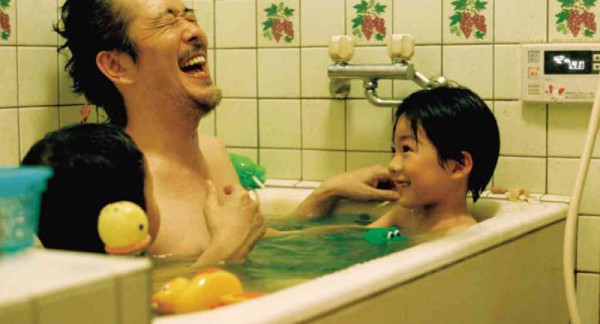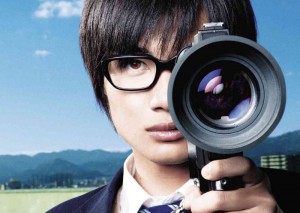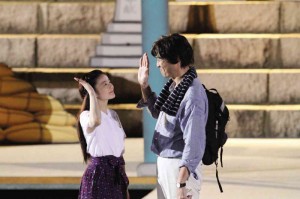This year’s Eiga Sai, aka the Japanese Film Festival, presents its largest lineup (16 movies) in 16 years, according to Yukie Mitomi, Japan Foundation assistant director.
“Most of the films are fairly recent, produced between 2009 and 2014,” Mitomi told the Inquirer.
Centerpiece of the fest, set at the Shangri-La Plaza Mall cineplex starting today till July 13, is Hirokazu Kore-eda’s “Like Father, Like Son”—winner of 18 awards, including Jury Prize and Special Mention from the Ecumenical Jury at the Cannes International Film Festival last year.
The movie is about two families linked by a cruel twist of fate: Their sons were switched at birth. Explained Mitomi, “Family is this year’s festival theme.”
Shared qualities
Close family ties and respect for elders are traits shared by the Japanese and Filipinos, Mitomi noted. “In times of great adversity, we can depend on our families for love and support.” She elaborated: “The world witnessed family strength and community solidarity at work when our countries suffered natural calamities. We experienced the Great East Japan Earthquake in 2011; the Philippines survived an earthquake and Supertyphoon ‘Yolanda’ last year.”
Several films in the lineup tackle the aftermath of the Tohoku/Fukushima quake and tsunami. Ryoichi Kimizuka’s “Reunion” is about a funeral parlor owner who volunteers in a temporary morgue set up in a high school gym.
Opening film
The opening film, Kubota Nao’s “Homeland,” focuses on a man who returns after the disaster. “Homeland” was shown at the Berlin and Hong Kong film fests this year. “It shows a man’s frustration with the recovery efforts,” said Mitomi. “Hopefully, we can learn from this story.”
Nobuhiko Obayashi’s “Casting Blossoms in the Sky” follows a news reporter visiting Nagaoka, a city that welcomed those displaced by the disasters. It was screened at the 2013 Sitges-Catalonian International film fest.
There are also documentaries on recovery and rehabilitation, communities rising after major setbacks. “Hearts Together: The Journey of a Song” trails Grammy-winning jazz pianist Bob James and Japanese pop star Seiko Matsuda as they prepare for, and perform in, a charity concert in a tsunami-hit area.
“Things Left Behind” features renowned photographer Miyako Ishiuchi’s exhibit on Hiroshima, site of the 1945 atomic bomb explosion that ended World War II in the Pacific.
The fest is not limited to serious themes, though, said Mitomi. “We have comedy, coming-of-age, fantasy and animated films.”
Award-winning director Hosoda Mamoru’s animated film “Wolf Children” is on the list. Mamoru’s previous works (“The Girl Who Leapt Through Time” and “Summer Wars”) have received awards at the Tokyo Anime Awards, Oslo Films from the South, Sitges-Catalonian and Amsterdam Fantastic festivals.
Autobiography
The other animated film, Akio Nishizawa’s “Symphony in August,” chronicles the life and times of singer-songwriter Ai Kawashima. It is based on “The Last Words,” Kawashima’s autobiography.
Films for the youth are: Shuichi Okita’s “A Story of Yonosuke,” Nobuhiro Yamashita’s “Tamako in Moratorium” and Daihachi Yoshida’s “The Kirishima Thing.”
Another highlight is Seiji Aburatani’s “Fly, Dakota, Fly.”
Set in 1946, “Fly, Dakota, Fly” is about a British military plane that makes an emergency landing on Sado Island and how the inhabitants play host to the British crew.
Film fests play an important role in a time of conflict and tension, like China’s territorial disputes with the Philippines and Japan, Mitomi said. “It is cultural diplomacy at work. People from different countries learn about each other in the relaxed atmosphere of a movie house.”




